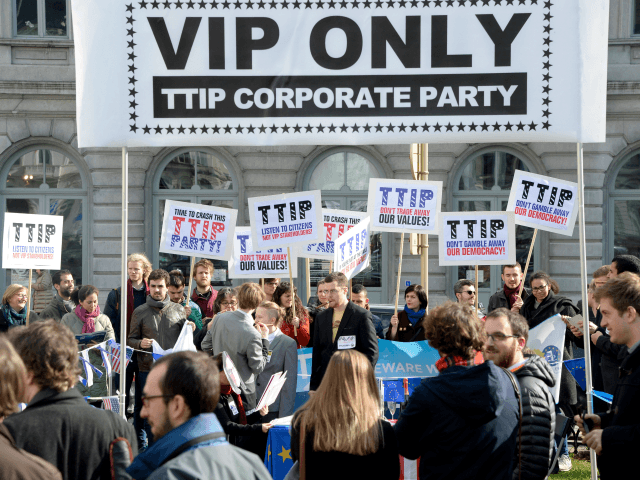European Union (EU) Trade Commissioner Cecilia Malmström said that despite the rhetoric on all sides of the U.S. election campaign, Transatlantic Trade and Investment Partnership (TTIP) negotiations continue with the aim of concluding a deal before the end of President Barack Obama’s term in January 2017.
Ms. Malmström was visiting Washington DC for TTIP talks with her US Trade Representative counterpart, Michael Froman, when she stated:
“For the moment we continue to negotiate, to agree on as much as possible with this administration. Just because there’s an election, we can’t stop our activity.”
In doing so the negotiators ignore the campaign rhetoric of candidates fighting for each of the main parties’ presidential candidate nominations, particularly Republican front-runner Donald Trump and Democrat Bernie Sanders. Major initiatives of President Obama, both the already agreed but yet to be ratified Trans Pacific Partnership trade and investment pact (TPP) and TTIP are controversial on both sides of the Atlantic.
In the US it has been argued that workers stand to lose their jobs with such deals, a claim which many credit with Hillary Clinton’s surprise defeat by Mr. Sanders in the recent state primary held in manufacturing-heavy Michigan.
Of particular concern is the EU’s enthusiasm for expanding market access in the US through the removal of ‘flow-down’ restrictions requiring state projects funded from federal sources to work with domestic bidders. Ms. Malmström dismisses such concerns, saying:
“Without entering into debate with one individual, I don’t share those arguments. In good trade agreements, there are a lot of economic advantages.”
As Breitbart London previously reported, one of the most controversial elements of the proposed deal for Europeans is the Investment Court System (ICS), a quasi-court jurisdiction available to foreign investors to challenge democratic states with binding arbitration. The ICS is thought to be intended to allow investors to defend private economic interests by challenging national rules and laws.
According to the Bertelsmann Foundation’s latest BBrief, EU negotiators hope to “enshrine governments’ “right to regulate” in the public interest and create an appellate mechanism and a standing list of arbitrators who could adjudicate cases,” a European model for a more court-like system. For its part the US maintains ICS is a “necessary component of a comprehensive trade and investment agreement, and is unlikely to agree to the entirety of the EU proposal.”
With major negotiating rounds set for April and July, and further informal meetings in March, June and May, the Trade Commissioner said she is determined to conclude talks on most TTIP chapters by the summer and to reach the final stage of talks by October meaning voting on the deal is likely to be conducted under President Obama’s successor.
Reuters and AFP contributed to this article.

COMMENTS
Please let us know if you're having issues with commenting.